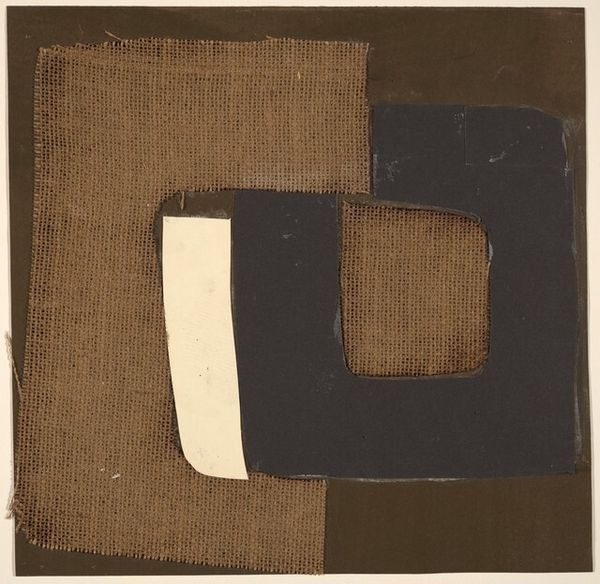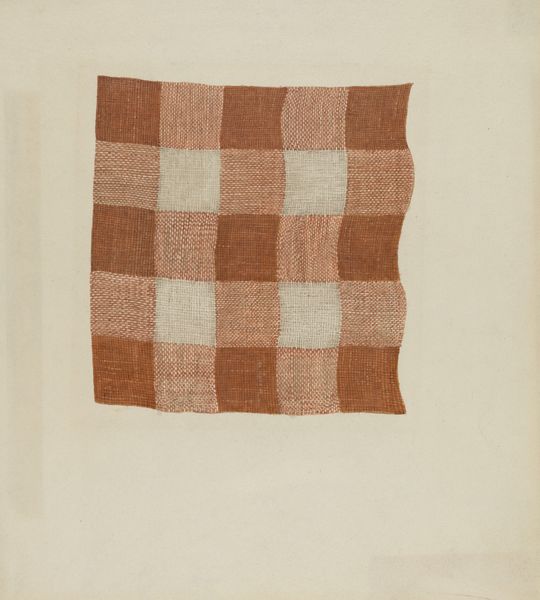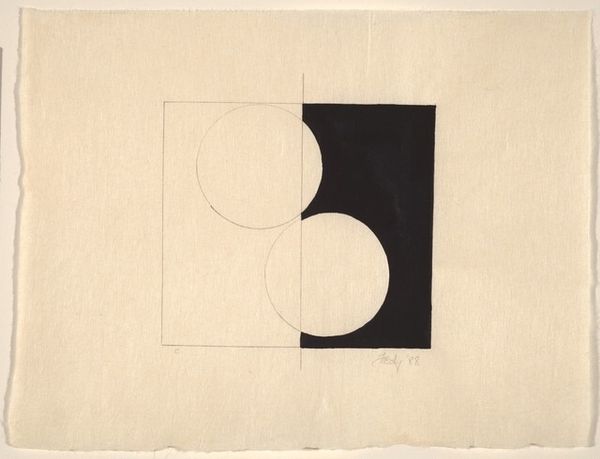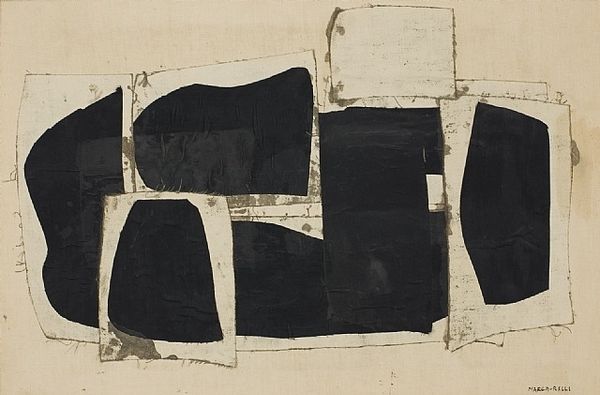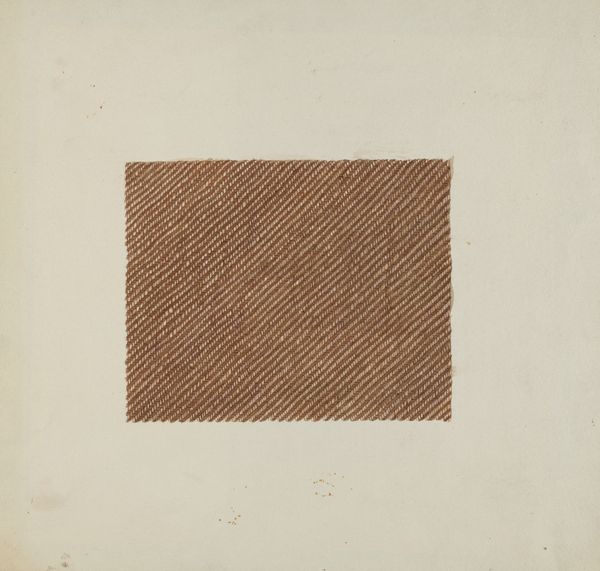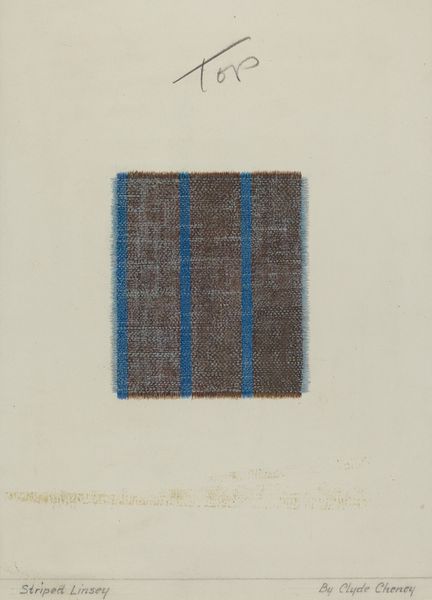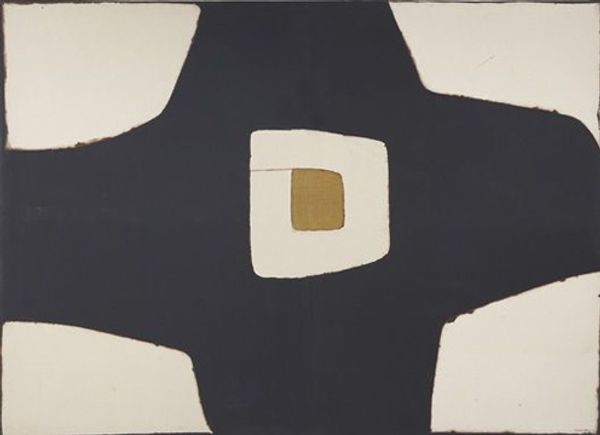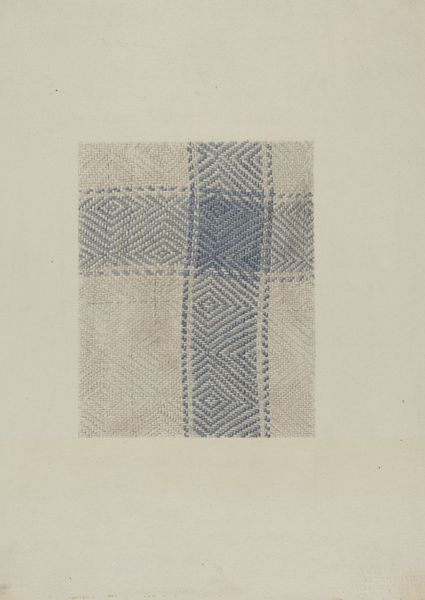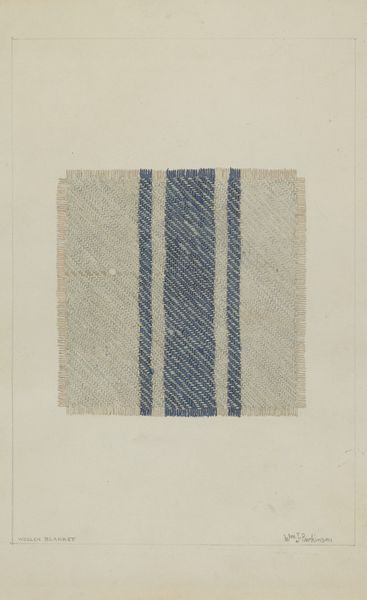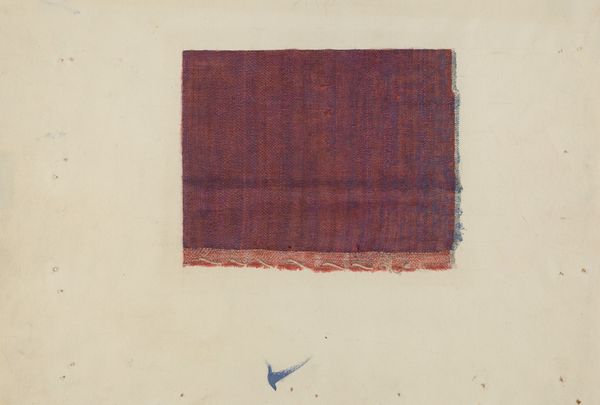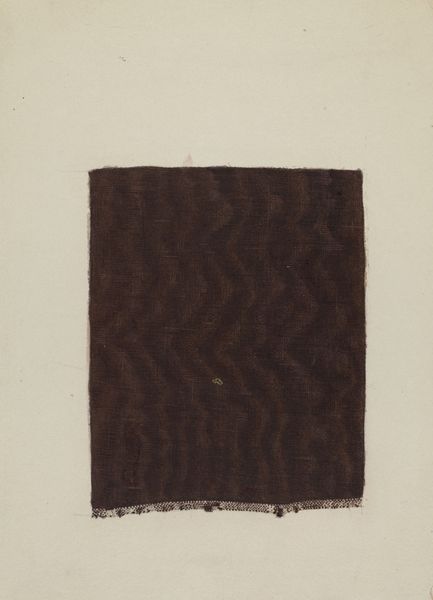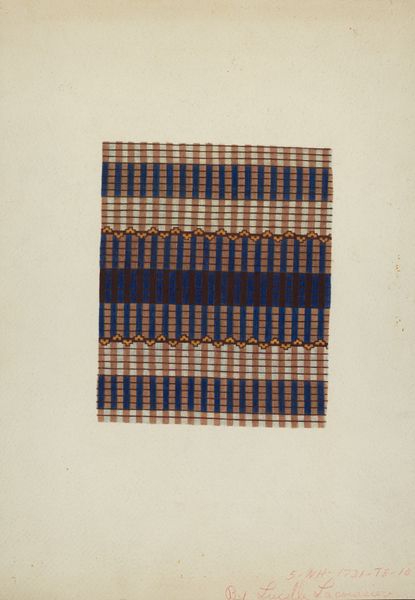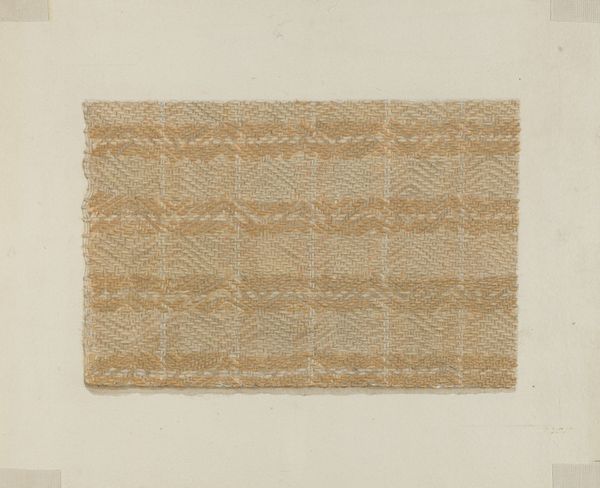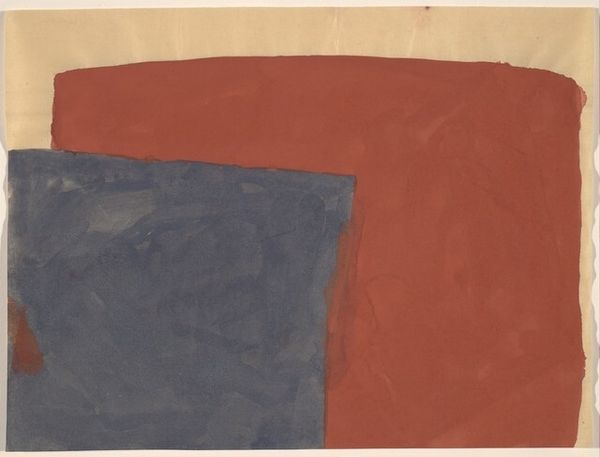
drawing, mixed-media, fibre-art, collage, metal, paper
#
abstract-expressionism
#
drawing
#
mixed-media
#
fibre-art
#
collage
#
metal
#
paper
#
abstraction
Dimensions: overall: 26.2 x 30.3 cm (10 5/16 x 11 15/16 in.)
Copyright: National Gallery of Art: CC0 1.0
Curator: I’d like to draw your attention to an abstract mixed-media collage by Conrad Marca-Relli, dating from around 1960 to 1970. It is simply titled, "Untitled." Editor: Immediately, what grabs me is this rough, tactile tension. The burlap against that smoother, dark shape. It’s oddly calming but also slightly…unfinished? Like a thought still in progress. Curator: Marca-Relli was very involved with the New York School and Abstract Expressionism, and this piece is a clear exploration of materials and forms typical of that movement. We see that in the way he brings together diverse elements like paper, burlap, and possibly even some metal fragments, defying the traditional boundaries of painting. Editor: I’m feeling this incredible connection to craft, the way he layers these textures… It feels almost primal, like someone piecing together remnants of a life lived. There’s this honesty about the raw materials. They haven’t been refined or prettied up, they’re just…themselves. Curator: And that emphasis on materiality is crucial. The art world after the war shifted, galleries promoted, and museums validated art that celebrated the very act of creation and the properties of materials themselves. Collage offered a democratizing potential—challenging traditional hierarchies. Editor: Right! Like the whole world's scraps could become art. Does that make sense? I just love that defiant stance—art as an act of reclamation. Plus, it sort of winks at this idea that art doesn’t have to be perfect or pristine. Curator: Absolutely, that embrace of imperfection. It echoes the broader societal shifts, questioning established norms. What this collage reflects is a deliberate aesthetic choice and engagement with political conversations on value and history. Editor: I’m now stuck with this odd sense of nostalgia... for an era I never lived through. Like it holds these stories it refuses to tell explicitly, whispering just beneath the surface. Curator: Yes, a nostalgic pull is understandable, with abstraction as its cultural vocabulary and social intent for the time. It provokes in the viewer the responsibility to reflect on society, identity, and progress. Editor: Well said!
Comments
No comments
Be the first to comment and join the conversation on the ultimate creative platform.
